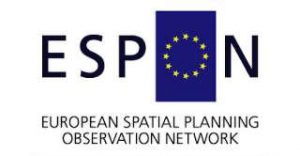News
Feasibility study of Székesfehérvár intermodal centre
CATCH_MR (Interreg): Cooperative approaches to transport challenges in Metropolitan Regions (2010-2012)
INTERREG IVC. Lead partner: Berlin-Brandenburg

CATH_MR explored sustainable transport solutions in seven European Metropolitan Regions: Oslo/Akershus in Norway; Gothenburg in Sweden; Berlin-Brandenburg in Germany; Vienna-Lower Austria; Budapest-Central Hungarian Region in Hungary; Ljubljana Urban Region in Slovenia; and Rome-Lazio Region in Italy. MRI staff was involved as experts on the Budapest research tranche.
Sustainable urban mobility plans (SUMP)
Effects of governance modes on affordability, sustainability and efficiency of the water services in three developing countries (2011-2012)
Client: Open Society Institute (OSI) and Global Development Network (GDN)

MRI conducted a research on water sector management in three countries (Armenia, Hungary, and Romania). The research was focusing on the main governmental and institutional factors influencing the performance of the water sector, highlighting the casual relations between these factors and the service outcomes in four different governance models. Case studies were prepared on national level and then synthetized in a final study.
Second Tier Cities in Territorial Development in Europe: Performance, Policies and Prospects (2010-2012)
EU ESPON (European Spatial Planning Observation Network)
Lead partner: Liverpool John Moores University, coordinator: Prof. Michael Parkinson

The Second Tier Cities project explored the performance of second-tier cities (non-capital economic, political and cultural hubs) in Europe, and showed that the development of these cities would bring greater added value than the further development of the already most developed capital cities. MRI as consortium partner held special responsibility for preparing the Central and Eastern European background study, and for the case studies on Katowice (Poland) and Timisoara (Romania).
PLUREL: Peri-urban Land Use Relationships – Strategies and sustainability assessment tools for urban-rural linkages (2008-2011)
European Commission: 6th Framework Programme for Research and Technological Development (FP6)

MRI was member of a large Europe-wide research consortium. The Institute’s specific task was to identify key planning and urban governance types accross the European Union, and to develop social indicators for land use change processes.
Representing the city of Budapest in Eurocities (1996-2010)
EUROCITIES – Brussels (1996-2010)

MRI staff supported Managing Director Iván Tosics, acting as expert (non-politician) representative of Budapest in EUROCITIES. Tosics coordinated the work of Budapest as chair of the Economic Development Forum (formerly Economic Development and Urban Reconstruction Committee) in 2007 and 2008. He also acted as member of the Executive Committee in 2009 and 2010.
Anti-segregation action plan for Csepel (2008-2009)
Title: Anti-segregation action plan developed for the municipality of district 21 of Budapest (Csepel)
Client: Municipality of Budapest Csepel
Period: 11/2008 – 05/2009

The municipality of Budapest Csepel (district 21) has prepared its Urban Development Plan by May 2008, in which the anti-segregation strategic plan of the district was included. The municipality wanted to turn this strategic plan into an action plan basing on detailed analysis of the potentially segregated neighbourhoods of the district.
MRI has carried out a detailed data set analysis (by breaking the municipal data into small neighbourhoods) and also made several interviews in the segregated areas and also interviews with the institutional actors.
The suggestions based on the analysis of the current situation are partly focused on each of the 4 segregated neighbourhoods (suggesting complete or partial demolition or slight development of the infrastructure, territorial concentration of social care services). The suggestions were also grouped to thematic topics like desegregation of education, cooperative model of social services, predictable public housing policy.)
Documents:
Study on Sustainable Regeneration in Suburbs (synthesis report)
 ReBLOCK project
ReBLOCK project There have been many surveys and researches
There have been many surveys and researches